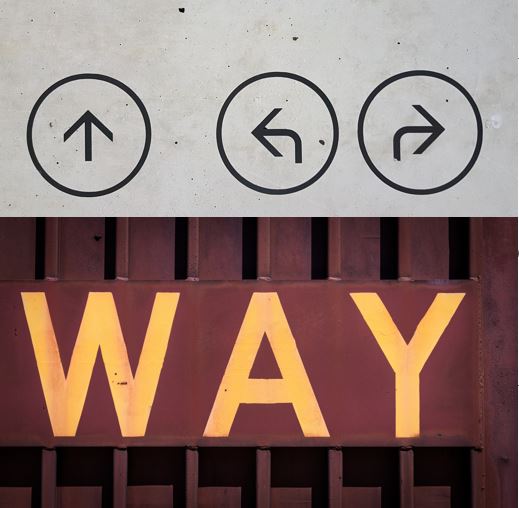“I’m not sure how to respond when someone says, ‘You’re hiring her because she’s a woman,’ Yessica said. Yessica is VP of operations at a midsize engineering company. She explained, “I interviewed two women and two men for the project manager position. I hired the woman based on her ability to get the job done well.”
I asked, “You’re asking because the employee who said that sounded accusatory?”
Yessica said, “Yes.”
I said, “That tough. It makes you feel defensive.”
She said, “That’s right. I don’t know whether I should defend my opinion or ignore the remark.”
I said, “That’s a good question. Actually, your response doesn’t have to be either.”
Three possible responses
There are generally three ways to respond to aggressive remarks and actions: silence, violence and what’s often called “the third way.”
I’ll get to the third way in a moment, but first silence and violence. Silence or violence map to the flight or fight responses of the amygdala part of our brains, sometimes called “the lizard brain.” Silence can be a withdrawing from, avoiding and/or masking the pain. Violence can be attacking, controlling and/or labeling the person or situation. Violence can be loud or quiet, fast or slow, and it creates suffering. Human evolution has conditioned us predominantly for these first two responses. So we have gotten really “good” at defaulting to an us-versus-them, either-or mentality, whether the issue is gender, politics, nationality, race, religion, orientation, generation, education or accent, and the list goes on and on.
That us-versus-them mentality is a symptom of a larger cultural system that influences the way we think, talk and act. More than two-thirds (66.8%) of people who take the Intercultural Development Inventory® (IDI) worldwide are unknowingly stuck in a mindset called Minimization, a stage at the middle of the five stages of cultural intelligence.(1) In order to avoid conflict, people in this stage of cultural intelligence tend to focus on what all people have in common and minimize people’s unique feelings and experiences, including their own. The unintended impact is frustration and anger.
The thing is, minimization is a systems problem, usually not any single individual’s fault. Dr. Edward Deming (1900–93), renowned management consultant, argued that 94% of problems are caused by the system, not the individual.(2) People who feel minimized are typically dealing with the inherited ignorance of the system. However, when we know better, we can do better. We can do better by taking the third way.
Taking the third way
The third way is a contemplative approach, neither taking on people from a position of power nor minimizing them for fear of the conflict it might cause. The third way is a culturally intelligent response because it’s the compassion you express for yourself and another person, each within your own unique context. When you genuinely appreciate both your own and the other person’s perspective, space opens up and you can create win-win conditions.
When you feel the push to take an either/or position, instead you can…
- Slow down and take a breath,
- Step out of the power struggle,
- Remove the fantasy that you’re right and they’re wrong,
- Accept the inherent dignity of both you and the other person,
- Recognize the opportunity to create a win-win situation.
When you take a moment, minute or hour to stand in that more spacious third way, you’re in a place of grace out of which creativity, humanity and fresh ideas emerge.
Back to the story
I explained to Yessica, “It doesn’t have to be either/or because there’s a third way. You’re hiring because she’s the most qualified person. And you appreciate the fact that she’s a woman and you’re helping to diversify the company. More women are needed in construction.”
Yessica lit up. She said, “Yes, that’s right.”
I said, “So, it’s not an either/or scenario. It’s both. [She nodded.] You can respond by saying, “You’re right, I appreciate that she’s a woman; we need more women in construction. And the main reason why I’m hiring her is because she’s the most qualified candidate.’ That’s the third way.”
I asked Yessica, “How does that response land on you?”
She smiled and said, “I like that. It’s answering their concern, supporting my hiring choice and acknowledging my desire to diversify the company. Both of us win.”
Everyone wins when colleagues talk, work and lead with cultural intelligence. Taking the third way by using cultural intelligence is the means to greater job satisfaction, productivity, innovation and profit in any business. – Amy Narishkin, PhD
Who do you know in your family, community or network that would find this blog helpful? Please share this blog with them.
References:
- Hammer, M. (2016) Intercultural Development Inventory Resource Guide. Olney, MD: IDI, LLC.
- Deming, E. (2012) The System of Profound Knowledge. https://deming.org/demings-system-of-profound-knowledge/#:~:text=The%20System%20Of%20Profound%20Knowledge,theory%20of%20knowledge%20and%20psychology
- Photo by Kai Graderton Unsplash
- Photo by marianne boson Unsplash

